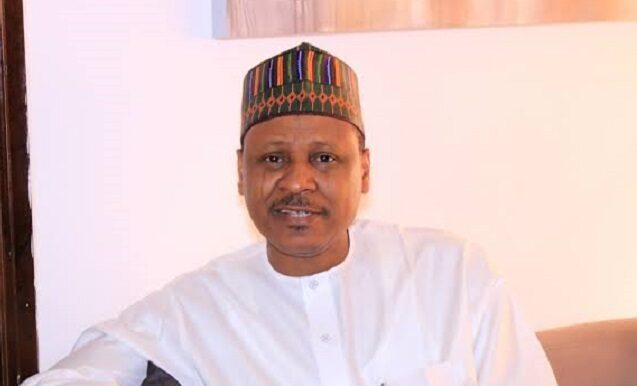The Minister of Information and National Orientation, Mohammed Idris, has stated that President Bola Tinubu’s administration has attracted $30 billion in Foreign Direct Investment (FDI) commitments into the real sectors of the nation’s economy since assuming office.
This announcement was made as he disclosed that the present administration, headed by President Tinubu, is determined to collaborate with the National Assembly in the 2024 Constitutional Review process to achieve the necessary amendments allowing the creation of state police.
Alhaji Idris made these remarks at an Iftar (Breaking of Fast) and interactive session with media executives and practitioners organized by his ministry, held at the Armani Events Center in Kano yesterday.
He stated, “These investment commitments cover various sectors including Manufacturing, Telecoms, Healthcare, Oil and Gas, among others, and are already being realized.”
The Minister further disclosed that the Nigerian economy grew by 3.46 percent (year-on-year) in Q4 2023, compared with 2.54 in the preceding quarter, which he said was a better performance than anticipated.
Capital Importation into Nigeria increased by 66 percent in Q4 2023 compared with Q3 2023, reversing a 36 percent decline in the previous quarter.
ALSO READ: Emeka Ike, wife welcome baby girl
President Tinubu’s new Oil and Gas policy reforms program would, when implemented, generate a billion cubic feet per day additional gas supply, create 2.3 million jobs, and boost GDP by $17 Billion. It would also compress Nigeria’s oil and gas contracting cycle from 38 months to less than 6 months.
The new tax incentives being implemented have the potential to attract up to $10 Billion in new oil and gas investment. Additionally, a new Presidential Policy Directive would bring down operating costs for oil and gas operations in Nigeria, currently 40% higher than the global average, he said.
He, however, hinted that enhanced security measures across the Niger Delta had increased NLNG Cargoes from an average of 16 cargoes in 2023 to 21 cargoes in Q1 2024.
He also disclosed that Nigeria’s oil production had risen from 1.22mbpd in Q2 2023 to 1.6mbpd in Q1 2024.
While stating that the Post Oil Subsidy Removal Economic Relief Interventions were designed to serve as short and medium-term palliatives, he added, “We wait to reap the long-term benefits of the reforms: Provisional wage increment of N35,000 monthly for six months – four months already paid.”
Speaking further, he said that with the establishment of state police in Nigeria, about 10 million Nigerians will be directly and indirectly employed, with each state in Nigeria requiring an average of 20,000-30,000 police recruits as a result.
He, therefore, added that local manufacturers and producers of police fabrics and accouterments will multiply.
Civil society and lawyers at sub-national levels will be more fully engaged as litigations and prosecutions increase.
Agitation for the restructuring of the underlying structure of the country has been on the front burner of agitation by various subnational groups, civic society, and public intellectuals.
